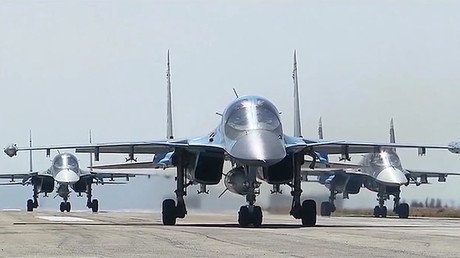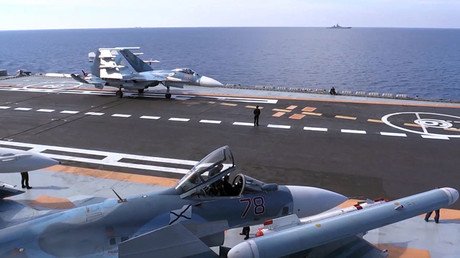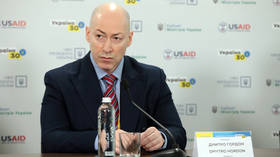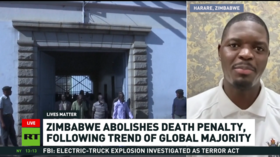Opposition party seeks restrictions on Russian military operations abroad
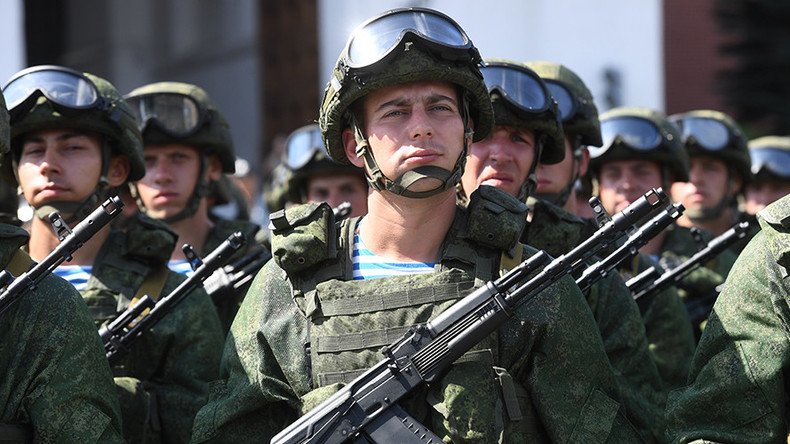
Russian opposition party Yabloko has launched a legislative initiative seeking to limit military operations abroad to a maximum of one year, with extensions requiring authorization from the Upper House.
The existing law requires Upper House authorization for foreign military operations, but not for reauthorization. The law lists the situations in which authorization can be granted: an attack on Russian military servicemen stationed abroad, a request for a military aid from a friendly nation, protection of Russian citizens suffering from an armed conflict, and securing shipping routes from piracy.
A statement posted on Yabloko’s website on Tuesday points out that according to the Constitution, any use of military force outside of Russia should be approved by the Upper House of Parliament – the Federation Council. However, in 2006 and 2009, the Upper House passed two acts allowing the president to send troops abroad to fight terrorism and complete other missions. Yabloko claims that this upset the balance between the branches of power and proposed measures to restore it.
Yabloko wants to amend the Federal Law on Defense with an article setting a 60-day limit for actual military operations abroad (operative use of military forces) and a one-year limit for having troops stationed in foreign countries without actual military operations (non-operative use). To prolong these periods, the president would have to receive additional approval from the Upper House.
Yabloko has already submitted draft proposals to the legislatures of St. Petersburg, and Pskov and Karelia regions. Russian law allows regional legislatures to submit bills to the Federal Parliament, but they need to be approved by a majority of regional lawmakers, and Yabloko only holds a few seats in each of the three assemblies (2 out of 50 in St. Petersburg, 3 out of 36 in Karelia, and 1 out of 44 in Pskov).
The chair of the Yabloko party, Emilia Slabunova, wrote in the press release that the initiative specifically targets the ongoing Russian Air Force operation against Islamic State (IS, formerly ISIS/ISIL) in Syria.
“If we fix particular terms in the law, the issue of our country’s participation in foreign military conflicts would be thoroughly discussed and weighed by the parliament at every stage,” she wrote.
The deputy head of the Upper House Committee for Defense and Security, Senator Frants Klintsevich, told reporters that Yabloko’s initiative had no chance of passing.
“Yabloko’s legislative initiative has no future and it is not only because they lack votes to push it through any regional legislature and submit to the State Duma,” Klintsevich told RIA Novosti on Tuesday.
“There is no sense in discussing the pluses and minuses of this move. In the present international situation, it is simply unacceptable. It is unacceptable to tie the president’s hands when decisions are made, not even in hours, but in minutes,” he said.
Russia first deployed an air force contingent to Syria in 2015, after receiving a request for military assistance from the Syrian government, which continues to battle Islamic State and affiliated groups. Russian war planes began launching airstrikes on terrorists in Syria on September 30, 2015. Their work has aided the Syrian military in achieving considerable success in driving jihadist forces out of the country.
In October 2016, the Russian parliament ratified an agreement, which Putin signed, to deploy the Russian Air Force to Syria on an indefinite basis. Russia has also deployed special forces and anti-aircraft systems to the area to protect the base from attack.
However, a public opinion poll conducted by the independent Levada Center in mid-August this year showed that 49 percent of Russians think that the government should end the counter-terrorism operation in Syria, while 30 percent support the continuation of strikes, and 22 percent said they had no opinion on the issue.
